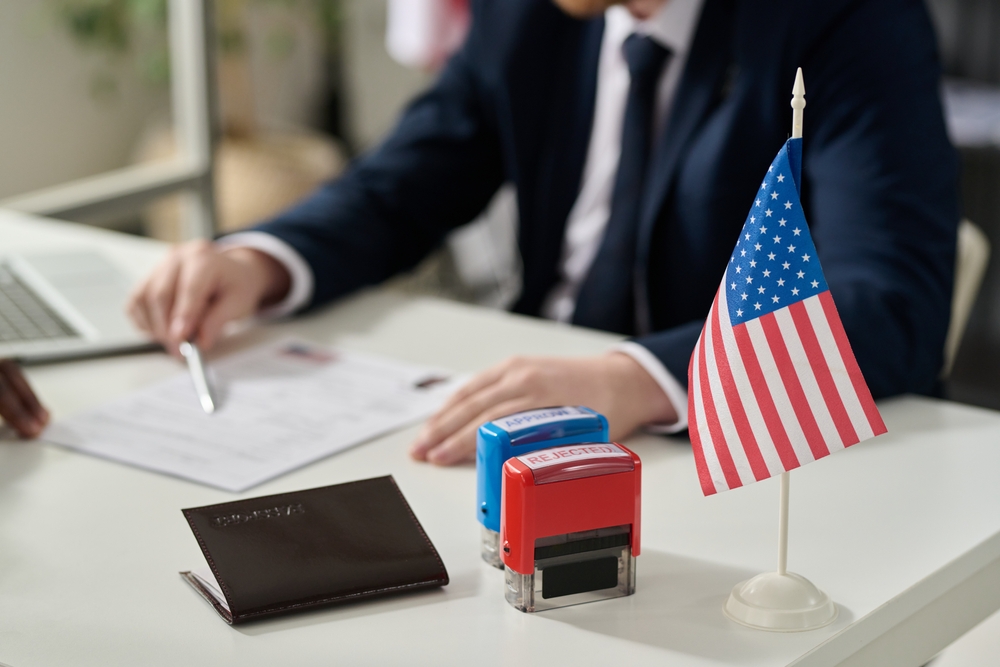Applying for a $20,000 visa sponsorship job opportunity in the U.S. as an immigrant involves careful planning, attention to detail, and a clear understanding of the process. I believe having a step-by-step guide is essential it’s not just about applying to jobs, but about strategically positioning yourself to secure employment and legal entry into the U.S. workforce.
From identifying companies that sponsor visas to preparing your application materials, navigating interviews, and understanding the visa process, each step matters. Let me walk you through a comprehensive, easy-to-follow process to help you apply successfully and increase your chances of obtaining sponsorship.
Understanding Visa Sponsorship and Job Opportunities
Visa sponsorship is when a U.S.-based employer agrees to sponsor a foreign national’s work visa, typically an H-1B, to legally employ them. Sponsorship involves demonstrating to U.S. authorities that the position requires specialized skills and that no qualified U.S. worker is available for the role. Job opportunities requiring sponsorship are usually in sectors like technology, engineering, healthcare, and finance.

Understanding eligibility, visa types, and employer requirements is crucial. Websites like myvisajobs.com help identify companies open to sponsoring visas. Securing a sponsorship-ready job requires a strong skill set, professional experience, and a strategic approach to targeting suitable employers.
What is Visa Sponsorship?
Visa sponsorship means that a U.S. employer is willing to sponsor you, the foreign worker, for a work visa to legally work in the U.S. This involves the employer petitioning the U.S. government on your behalf and sometimes covering the associated costs.
Types of Jobs That May Offer Visa Sponsorship:
- Entry-Level Positions: Many companies offer entry-level positions starting at around $20,000, which can be a gateway for immigrants. These positions often require less experience and can range from administrative roles to customer service.
- Specialized Roles: Some industries, particularly tech, healthcare, and engineering, may offer higher salaries but might also have entry-level roles suitable for new immigrants.
Read: Top Industries Employing Immigrants in 2025: Where the Jobs Are Now
Researching Potential Employers
Before applying, it’s essential to research potential employers who are known to sponsor work visas. Start by identifying industries aligned with your skills, then look for companies with a history of hiring international workers. Check company websites, job boards, and immigration-related databases like the H-1B Disclosure Data. Learn about company culture, diversity policies, and visa sponsorship records.
Networking via LinkedIn and professional associations can also uncover hidden opportunities. Understanding an employer’s mission, values, and hiring practices ensures your application aligns well, improving your chances of success. Targeting the right companies saves time and focuses your job search efficiently.
Before applying, it’s crucial to research companies that are known to sponsor visas for foreign workers. Here are some resources to help:
- MyVisaJobs: This website provides data on U.S. companies that have filed H-1B visa petitions. You can search by job title and location.
- Glassdoor and Indeed: These platforms allow you to search for jobs and read company reviews, giving insights into companies’ hiring practices and employee experiences.
- LinkedIn: Utilize LinkedIn to network with professionals and find companies that have a history of hiring international workers.
Tips for Research:
- Look for companies in sectors known for hiring international workers, such as IT, healthcare, and finance.
- Target larger corporations as they often have the resources and policies in place for visa sponsorship.
- Check company websites and their careers pages for information about their visa sponsorship policies.
Preparing Your Application Materials
Tailoring your application materials is key to standing out. Start with a professional résumé emphasizing your relevant skills, work experience, and educational background. Include accomplishments with quantifiable results. Your cover letter should be concise, customized for each job, and mention your need for visa sponsorship, if applicable.
Prepare a portfolio or work samples, if relevant to your field. Use clear formatting, avoid jargon, and ensure error-free writing. It’s helpful to follow U.S.-style résumé standards no photos, personal details, or excessive length. Having your documents reviewed by a mentor or career counsellor can enhance their quality and impact.
Resume:
- Tailor your resume to match the job you are applying for.
- Highlight relevant skills, experiences, and qualifications that align with the job description.
- Include any international experience or language skills that may set you apart.
Cover Letter:
- Write a customized cover letter for each application.
- Explain why you are interested in the role and how your background makes you a suitable candidate.
- Mention your willingness to relocate and your interest in visa sponsorship.
References and Certifications:
- Prepare a list of professional references who can vouch for your skills and work ethic.
- Gather any certifications or credentials relevant to your field.
Applying for Jobs
Once your materials are ready, begin applying strategically. Use job portals like Indeed, LinkedIn, and Glassdoor, filtering for roles open to visa sponsorship. Apply directly through company websites when possible, and keep track of applications in a spreadsheet. Customize your résumé and cover letter for each position, highlighting how your skills match the job description.

Respond promptly to follow-up requests and be prepared for assessments or preliminary interviews. Don’t mass-apply without proper customization it reduces effectiveness. Stay organized, set daily or weekly application goals, and remain persistent. The U.S. job market can be competitive, especially for foreign candidates.
Where to Find Job Listings:
- Job Boards: Use websites like Indeed, Glassdoor, and Monster to search for jobs with keywords such as “Visa Sponsorship” and your desired job title.
- Company Websites: Visit the careers page of companies you are interested in. They often list job openings that may not appear on general job boards.
- Recruitment Agencies: Consider agencies that specialize in placing international workers.
Submitting Applications:
- Follow the application instructions precisely. Some companies have specific processes for international applicants.
- Use professional and clear language in all your application materials.
- Keep track of your applications to follow up appropriately.
Read: The Impact of Executive Order 14160: Understanding the Changes to Birthright Citizenship
Jumping into the Interview Process
Interviewing in the U.S. typically involves multiple rounds of phone screens, video calls, technical assessments, and final interviews. Be prepared to discuss your experience, achievements, and how you add value to the company. Practice common behavioural questions using the STAR method (Situation, Task, Action, Result).
Know your résumé thoroughly and be ready to explain any gaps or transitions. If asked about visa sponsorship, be honest and informed. Research the company and have thoughtful questions prepared. Dress professionally and be punctual, even for virtual interviews. Confidence, clarity, and enthusiasm go a long way. Follow up with a thank-you email afterwards.
Preparing for Interviews:
- Research common interview questions for your industry and prepare your answers.
- Be ready to discuss why you need visa sponsorship and how your skills benefit the company.
- Practice your responses to ensure clarity and confidence.
During the Interview:
- Emphasize your willingness to learn and adapt to a new working environment.
- Be clear about your visa status and your expectations for sponsorship.
- Ask questions about the company’s experience with sponsoring visas and their process.
Understanding the Visa Process
The visa process for working in the U.S. can be complex. After securing a job offer, your employer initiates the sponsorship, typically through an H-1B petition. This involves submitting documents to the U.S. Citizenship and Immigration Services (USCIS), including proof of your qualifications and job details.
The H-1B visa has an annual cap and lottery system unless the employer is cap-exempt (e.g., universities). If approved, you’ll attend a visa interview at a U.S. embassy or consulate. Processing times vary, so planning ahead is vital. Consulting an immigration attorney or your employer’s HR team ensures smoother navigation through the system.
Common Visa Types:
- H-1B Visa: For speciality occupations requiring a bachelor’s degree or higher. It’s the most common work visa for skilled workers.
- L-1 Visa: For intra-company transferees who work in managerial positions or have specialized knowledge.
- E-2 Visa: For investors and certain employees of treaty countries who make a significant investment in a U.S. business.
Employer’s Responsibilities:
- The employer files a petition with the U.S. Citizenship and Immigration Services (USCIS) on your behalf.
- They may need to prove that no qualified U.S. worker is available for the position (Labor Certification).
Your Responsibilities:
- Provide all necessary documentation, such as your resume, qualifications, and proof of experience.
- Attend visa interviews if required and comply with all application procedures.
Finalizing Your Move to the U.S.
Once your visa is approved, you’ll need to finalize your relocation. Book your flight, secure housing (temporary or permanent), and prepare key documents like your passport, visa approval notice, job offer letter, and academic records. Understand your healthcare options and consider travel insurance. Notify your bank and research options for setting up a U.S. account.

Learn about your new city’s transportation, cost of living, and local culture. Stay in touch with your employer for onboarding instructions. It’s helpful to join expat communities online for advice. A smooth transition depends on careful planning, organization, and an openn mindt for new experiences.
Visa Approval:
- Once your visa is approved, you will receive documentation to enter and work in the U.S.
- Ensure you understand the terms and conditions of your visa to maintain compliance.
Preparing for Relocation:
- Plan your move, including housing, transportation, and understanding the local area where you will live and work.
- Familiarize yourself with cultural and workplace norms in the U.S.
Starting Your New Job:
- Engage with your new employer’s orientation and training programs.
- Build relationships with your colleagues and understand your job responsibilities thoroughly.
Read: Secret USA Scholarships That Offer Work Opportunities – You Won’t Believe
Applying for a $20,000 U.S. visa sponsorship job as an immigrant requires a clear, step-by-step approach. It involves identifying sponsoring employers, tailoring your résumé and cover letter, submitting strong applications, preparing for interviews, and understanding the visa process. With the right strategy and preparation, immigrants can successfully secure sponsored employment opportunities and legally work in the U.S.
APPLY NOW
Important Notice
Staff of JobsGist will never contact you or ask you to contact them for any deal, assistance, or payment. Anyone claiming to represent us in such a manner is not affiliated with us and should be considered a scammer.
Disclaimer: This article is for informational purposes only. We are not visa agents and do not offer any form of assistance beyond announcing verified job vacancies.
